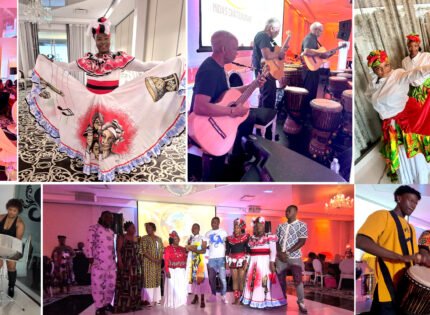A government in free fall with one minister after the next either forced to resign or fired.
As in Can ada, 2015 is an election year in Trinidad and Tobago. The current People’s Partnership government was elected with a majority of 29 seats out of a total of 41 in 2010 because many people had become disenchanted with the government of Prime Minister Patrick Manning’s People’s National Movement (PNM), as a result of perceived corruption and megalomania on the part of the prime minister.
ada, 2015 is an election year in Trinidad and Tobago. The current People’s Partnership government was elected with a majority of 29 seats out of a total of 41 in 2010 because many people had become disenchanted with the government of Prime Minister Patrick Manning’s People’s National Movement (PNM), as a result of perceived corruption and megalomania on the part of the prime minister.
Though there was much hope in the new United National Congress-led coalition government of Kamla Persad-Bissessar, especially being the country’s first female Prime Minister, it was also assumed that many people were simply voting against the old regime.
There is the saying that people get the government that they vote for and deserve, but I am not sure that Trinbagonians were quite prepared for the shenanigans of Prime Minister Kamla and her crew. What was to quickly follow were many allegations of corruption (which some have described as the most corrupt they have seen) theft, and misbehaviour on the part of ministers?
Among the earliest that had cause to be dismissed by the prime minister was the minister of Planning, Mary King, who was accused of conflict of interest by showing favor to a family member with a government contract.
Not long after it was Colin Partap, a minister in the ministry of National Security, who was accused of driving drunk and refusing to take a breathalyser test.
Following was the minister of Justice, Herbert Volney, who was dismissed for allegedly misleading Parliament and gaining the Cabinet’s approval and the President’s proclamation with regards to Section 34 of the Administration of Justice Act 2011.
His action, though designed in theory to clear up certain backlogs in the courts, was seen as an accommodation to United National Congress financiers, Ish Galbaransingh and Steve Ferguson, trying to avoid being extradited to the United States to face criminal charges. Many felt that he was simply the fall guy.
Minister of Gender, Youth and Child Development, Verna St. Rose, was fired for trying to force the Cabinet into accepting her own position of pro-gay rights and pro-abortion with respect to national gender policy. Other firings included Minister of Tourism, Chandresh Sharma, who was accused of violence towards a former girlfriend.
Then there was Minister of the People and Social Development, Dr. Glen Ramdharsingh, who was dismissed for misbehaviour on a domestic flight when he appeared to be drunk and failed to follow the instructions of the flight crew. Additionally, he was accused of touching the breast of the flight attendant in an attempt to see her nametag and threatening to get her fired. He had also been accused of asking sexual favors of a 47-year-old woman seeking assistance from his ministry.
Minister of Sport, Anil Roberts, was dismissed from the government because of some TT$400 million of fraud, theft, and financial discrepancies within the Life Sport program, which was under his responsibility.
The latest dismissals were the Attorney General, Anand Ramlogan, and the minister of National Security, Gary Griffith. In the case of the former, there were allegations of witness tampering, and in the case of the latter it was failure to inform the Prime Minister.
Jack Warner, who was both minister of Works and Transport and minister of National Security, was not dismissed from the government, but chose to resign his post and the chairmanship of the UNC when he was accused of corruption and theft within the International Football Federation (FIFA). He later ran for re-election and won his Chaguanas West seat under his Independent Liberal Party.
All these dismissals, along with others who were simply relieved of their posts or re-assigned, are promoted by the People’s Partnership government and the Prime Minister as actions of good governance, in that the Prime Minister (as none other had done before her) is willing to take decisive action whenever and wherever there is misbehaviour in public office. Others see it simply as having a questionable team to begin with.
As the election race is now heating up, the People’s Partnership government seems willing to pull out all stops in an effort to keep their jobs.
In a recent motion of non-confidence against the Opposition Leader, Dr. Keith Rowley, Minister in the Ministry of the People and Social Development, Vernella Alleyne-Toppin, described Dr. Rowley as a product of rape and also accused him of being a pedophile rapist as well as being a kidnapper and gangbanger. Needless to say, lots of good people of all stripes were scandalized by the accusations.
It is obvious that the election strategy of the current government is to demonize Dr. Rowley to the point that no one would want to vote for him or his party. But they may have miscalculated the overwhelming response of the population describing the personal accusations as being the lowest of the low never before seen in the history of T&T politics.
Ms. Alleyne-Toppin has offered a half-baked apology, and the Prime Minister has sheepishly tried to convince everyone that she was as disgusted as the rest of the population by the allegations.
No date has been set for the elections and we do not know what surprises are yet to come, but it is the belief of many Trinbagonians that the People’s Partnership could be in trouble. Only the election results will tell.















